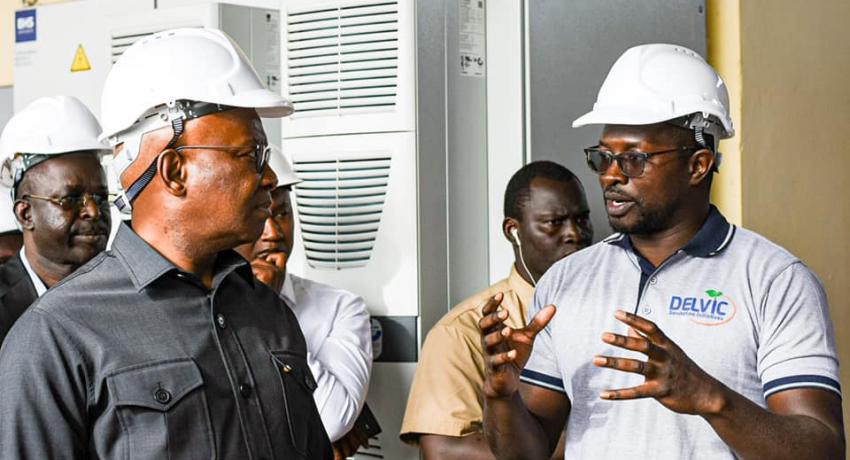The Minister of Water and Sanitation, Mr Serigne Mbaye THIAM visited innovative autonomous sanitation facilities in the Dakar region on Tuesday 21 January 2020.
The objective of this visit is to highlight Senegal's progress in the field of autonomous sanitation, which is the most widespread system in Senegal for the management of domestic wastewater. In Senegal's urban areas, half of the population does not have access to adequate sanitation infrastructure. This results in a considerable production of sewage sludge, which is mostly discharged untreated into the environment.
In this context, the State and its technical and financial partners have made enormous efforts to improve sanitation conditions for the population. In 2011, the Ministry of Water and Sanitation, through the Office National de l'Assainissement du Sénégal (ONAS), with the financial support of the Bill and Melinda Gates Foundation, set up a Pilot Programme for the Structuring of the Sewage Sludge Market (PSMBV), in order to offer a decent living environment to poor households by ensuring access to better quality and affordable sanitation facilities and mechanical emptying services.
The pilot programme and its transition phase, through its achievements, have considerably improved the living conditions of the populations of Pikine and Guédiawaye and have created a market for the emptying activity.
This has led to the following major achievements:
- Introduction of a technology for the valorization of the by-products of the autonomous sanitation in energy, water and ash with the installation of the first prototype of the omni-processor ;
- Introduction of three models of flood-prone toilets;
- Financing of 29 truck purchase files through the guarantee fund for the private sector;
- Decrease in the cost of emptying from 30,000 FCFA to 22,500 FCFA ;
- Construction of a new sewage sludge treatment plant with a capacity of 400 m3 per day at Tivaoune Peulh in the Dakar region;
- Increased revenues from sewage sludge treatment plants through their delegation to the private sector ;
- Improvement of the living environment of the populations (reduction of manual emptying and uncontrolled emptying of Sewage sludge);
- A strong advocacy of autonomous sanitation among technical and financial partners (TFPs), materialized by new opportunities for project implementation;
- The Delegation of Public Service (DSP) of the management and operation of the STBVs in the Centre zone (Dakar, Thiès and Diourbel regions), the V1 Omni-processor and the call centre to a national private operator.
On the strength of these achievements, the scaling up of the PSMBV in the 14 regions of Senegal is being carried out through :
- the Autonomous Sanitation Programme of Senegal (PAAS) which defines a coherent framework for the intervention of technical and financial partners in this field;
- the creation, in November 2019, of the Autonomous Sanitation Directorate which is responsible for the technical and financial control of the operation of STBVs and the implementation of the toilet dissemination strategy;
This Directorate aims to make autonomous sanitation an essential pillar for the achievement of the Sustainable Development Goals (SDGs) which, in point 6.2, aim "to ensure access for all, under equitable conditions, to adequate sanitation and hygiene services and to end open defecation by 2030, paying particular attention to the needs of women, girls and people in vulnerable situations".


